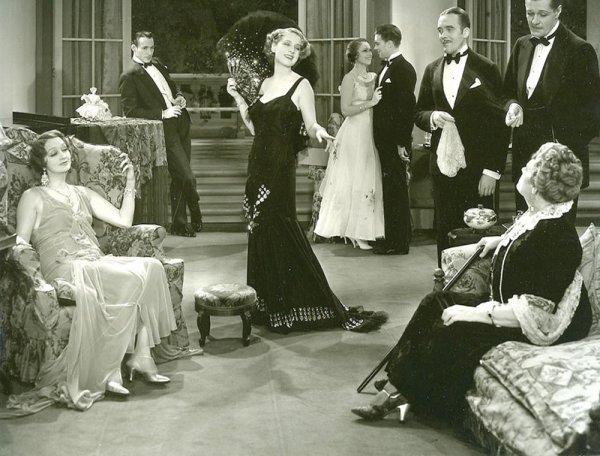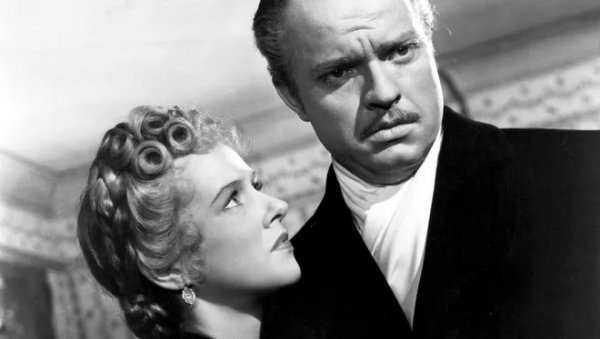- Messages
- 17,483
- Location
- New York City

Let Us be Gay from 1930 with Norma Shearer, Marie Dessler and Rod La Rocque
If you're a fan of pre-codes and Norma Shearer, then this is an okay movie in a curio way, but you will not, if you weren't already, become a fan of pre-codes or Shearer from this clunky, early talkie effort.
The pre-code thirties are chockablock with stagey, drawing-room movies about wealthy society people getting together over a long weekend (at a "house party") to drink, smoke, play tennis and cards, ride horses, swim, have many affairs and make sly references to all those same affairs. The Rich Are Always with Us and Our Betters are two superior examples of this type of effort.
Let Us Be Gay tries hard to be a good one too, but Hollywood - writers, directors, actors, cinematographers, etc. - hadn't learned yet how to make "talkies," so you end up with this clumsy effort with odd moments when no actor is talking or even on screen.
Also, many of the actors over gesture and emote, having not yet learned to tamp down their stage and silent performance techniques for the less demonstrative needs of the "talkies." Within a few years, Hollywood would fix most of these problems; although, Ms. Shearer, despite being a huge star through most of the thirties, never really left her theater/silent-movie-acting mannerisms behind.
The quick and dirty in this one is that Ms. Shearer was a young, devoted but dowdy housewife whose husband had an affair leading to their divorce. Fast forward a few years and Shearer is an attractive, much sought after woman of the world in an early Hollywood version of the ugly duckling discovering that she is really a beautiful swan.
From here, the big moment for the story is when her former husband, three years after their divorce, unexpectedly runs into her at a house party and, and this is only a spoiler alert if you've never been to the movies, falls in love, anew, with his now glamorous ex-wife. There's also a bunch of other rich-people shenanigans going on here, sparking jealousy and cheating, all fueled by too-much drinking.
And a shoutout is owed to the house-party's host, Marrie Dessler, who is sixty eight in this one, looks closer to eighty and shines versus the rest of the cast with her intuitive understanding of how to act in a "talkie." In need of a restoration and, as noted, a hot-mess overall, this one can only be enjoyed as a museum piece from early Hollywood.
N.B., Despite its movie-making techniques being dated as heck, the men's wardrobes look like they come from a modern Ralph Lauren advertisement. Ralph Lauren makes no secret that he was inspired by classic Hollywood, an inspiration on perfect display in Let us Be Gay.



